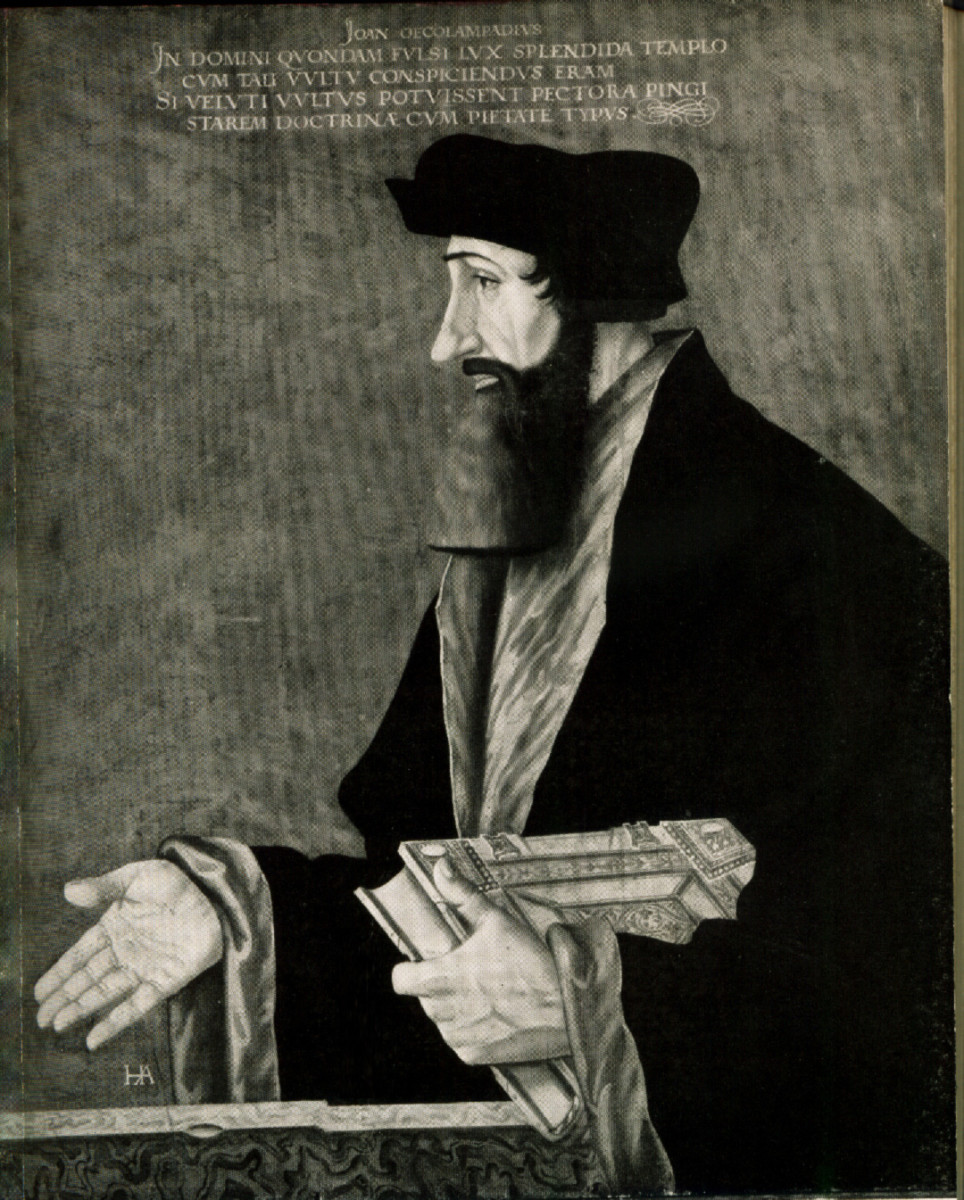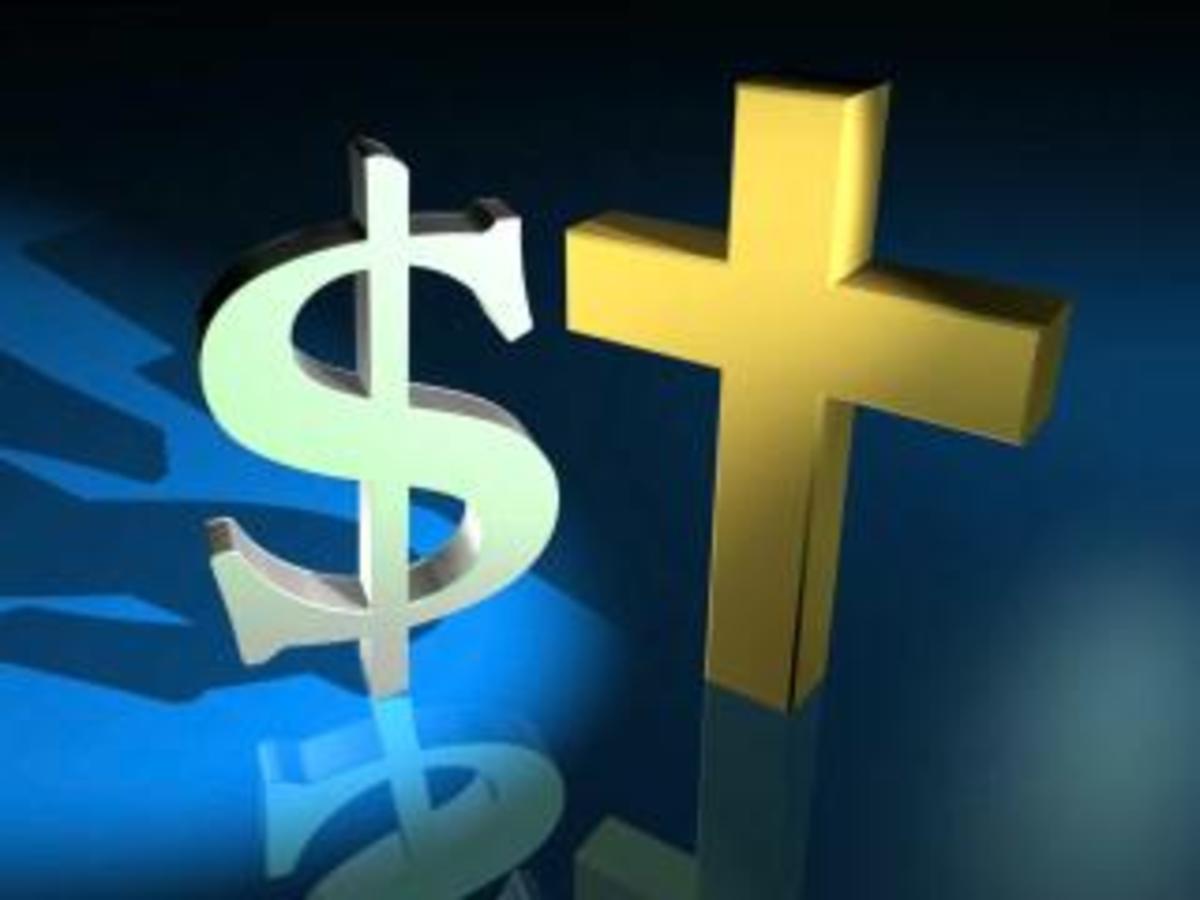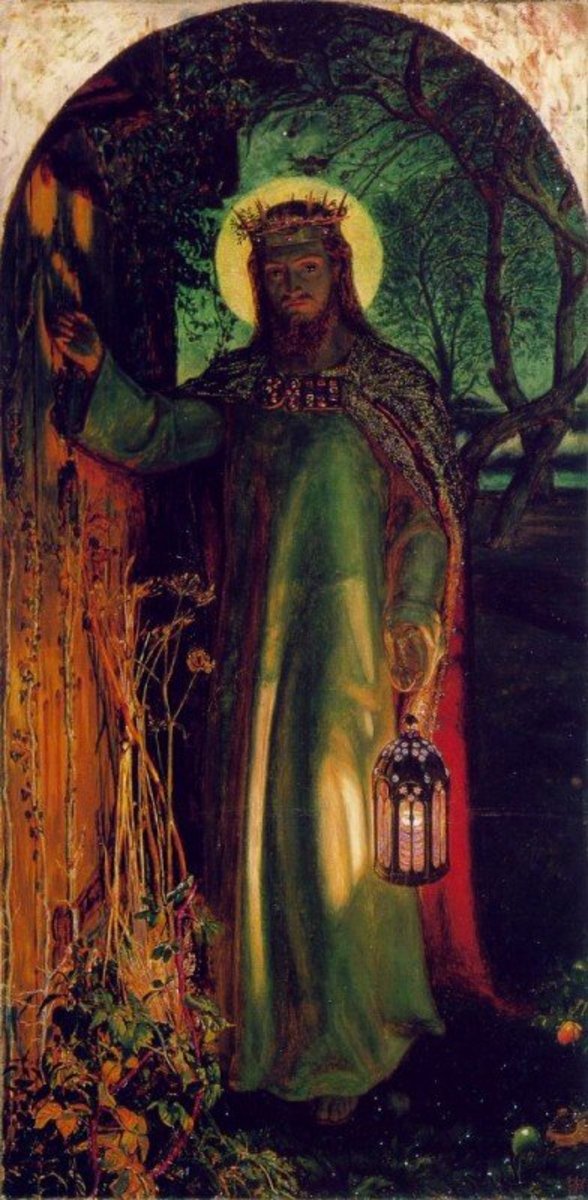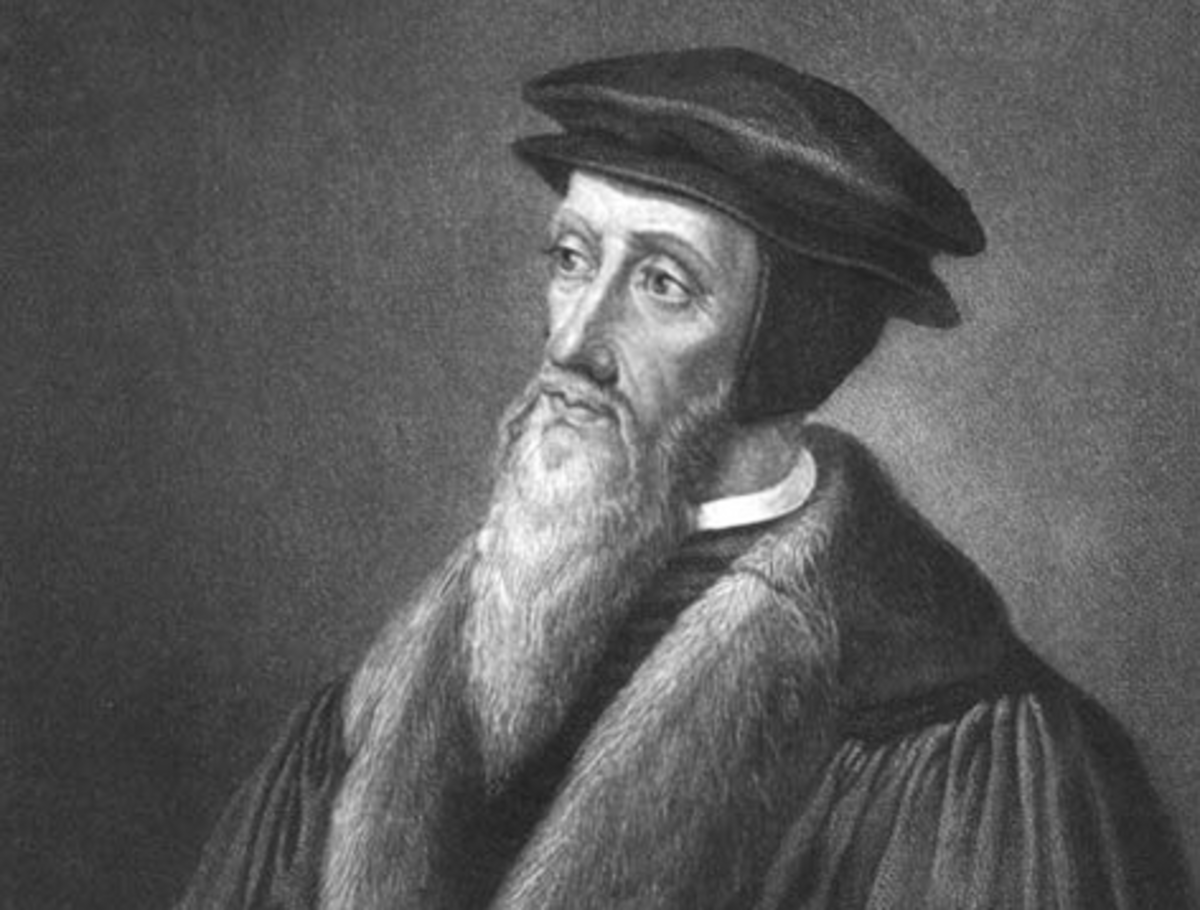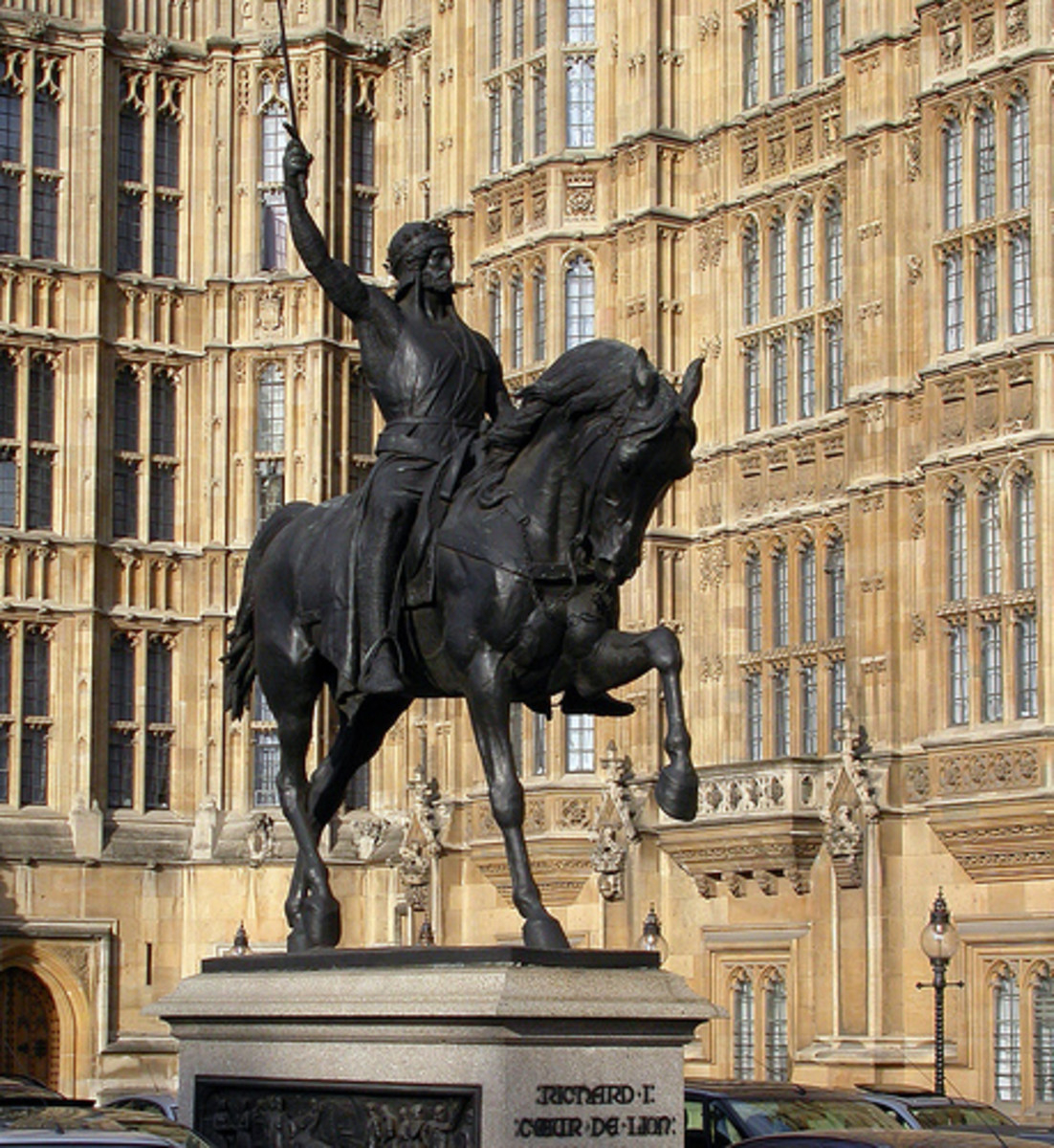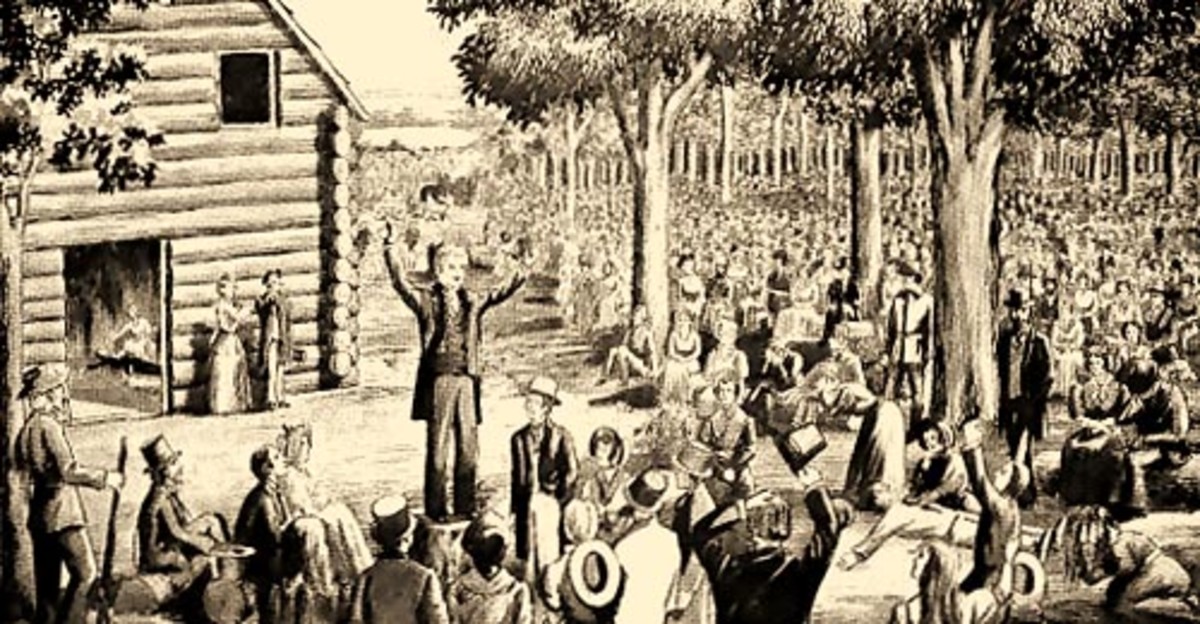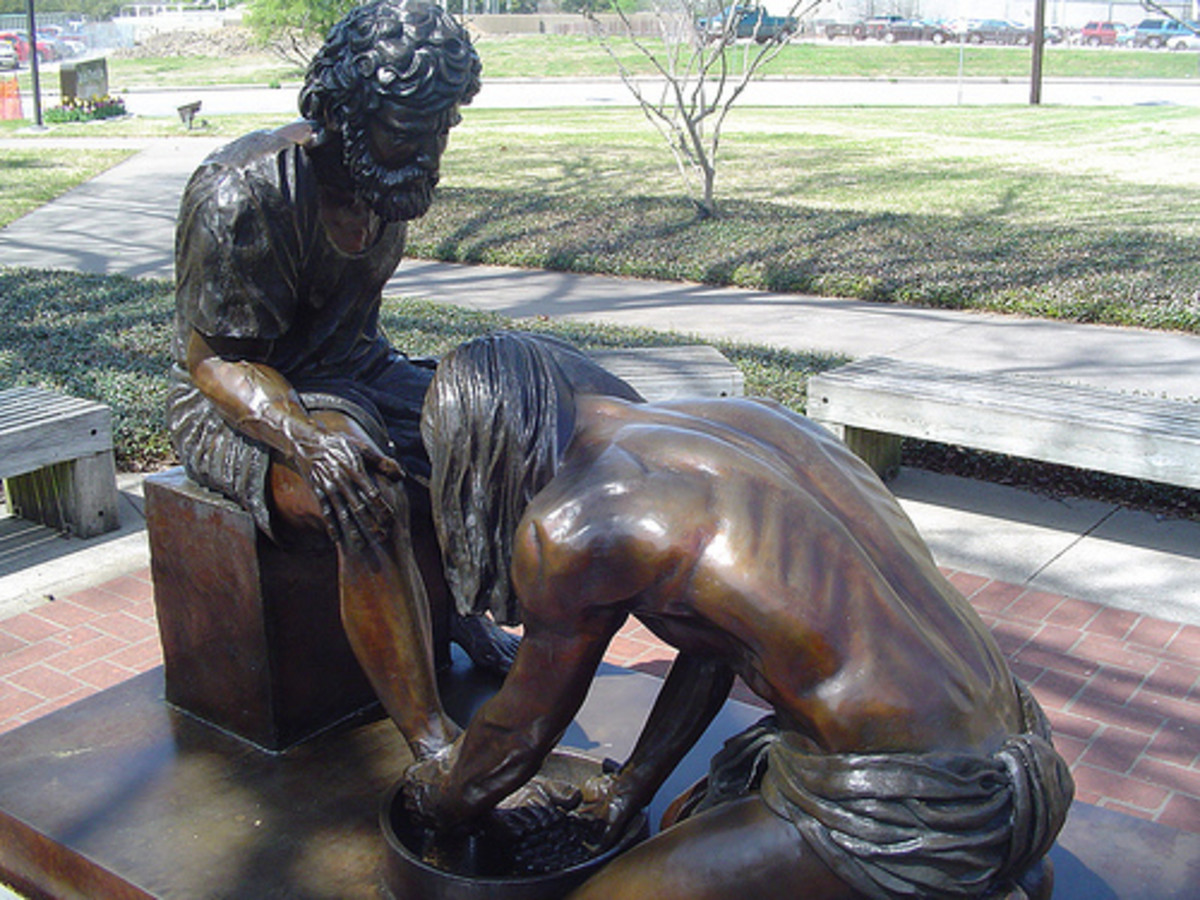Preparation For Transformation - Part 2
The Reformers
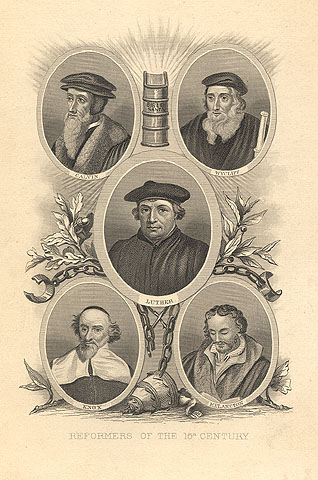
John Wycliffe
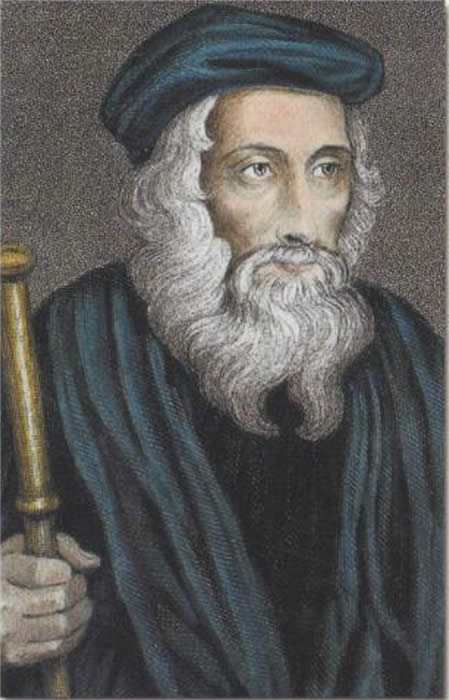
B) Wycliffe, The Morning Star of the Reformation
John Wycliffe was born in 1320 in the Village of Wycliffe, Yorkshire. Moyer gives this condensed descriptive of the man;
"[Wycliffe] occupies a distinguished place as an Oxford schoolman, a patriot, a champion of theological and practical reforms, and the translator of the Scriptures into English." (Moyer, (1951) 292)
In 1366, Wycliffe, appointed as King’s Chaplain, was sent to France to negotiate with Pope Gregory IX, regarding ecclesiastical appointments to England. Wycliffe had the opportunity to see firsthand the existing conditions of the papacy. Upon his return to England, he immediately began speaking out against the Pope’s secular sovereignty. In 1377, his outspokenness to great to go on unrebuked, Wycliffe was summoned to a hearing with bishop Courtenay at St. Pauls in London. This and the scandal of the “Great Schism” only resulted in Wycliffe’s increased momentum in producing writing’s, and he began “teaching that the true church of Christ is not the pope and his visible hierarchy, but rather the invisible body of those who are predestined to salvation, a point he drew from St. Augustine of Hippo.
Both were gaining dangerous popularity.Wycliffe then conceived the notion of training and sending out itinerant evangelists. By 1380, these “poor priests,” enlisted from Oxford graduates, were propagating Wycliffe’s teachings. Later they came to be known as Lollards, and were charged by the bishop of London, as being; itinerant, unauthorized preachers who teach erroneous, yea, heretical assertions publicly, not only in churches, but also in the public squares and other profane places, and who do this under the guise of holiness, but without papal authorization.
During this time, Wycliffe dared to publish his twelve theses against the idea that the bread and wine of the Holy Communion were transformed into the actual body and blood of Christ. Shelly gives a list of challenges Wycliffe brings against the church, pardons, indulgences, absolutions, pilgrimages, the worship of images, the adoration of the saints, the treasury of merits laid up at the reserve of the pope, and the distinction between venial and mortal sins.
This led to the condemnation of Wycliffe’s opinions in 1382 by the Archbishop of Canterbury, which resulted in Wycliffe’s being banned from teaching at Oxford. Yet upon retiring to the small town of Lutterworth, Wycliffe translated the New Testament into English from Erasmus’s Greek translation. Wycliffe died of a paralytic stroke in 1384. Through his writings, the preaching of the “Lollards,” Wycliffe’s reform ideas cleared some tall underbrush on the journey to Luther’s Reformation.
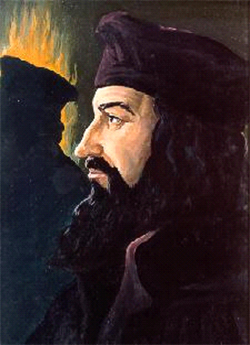
C) Hus, The Betrayed Bohemian
John Hus was born in Husinetz, Southern Bohemia (what is now known as Czechoslovakia).. In 1394, Hus attended the University of Prague where he received a Bachelor of Arts and more importantly was introduced to the writings of Wycliffe, and discovered the same burning zeal for church reform and doctrinal purity that Wycliffe had.
By 1409 Hus had became the leader of the national Bohemian party of the university, enabling greater success for reform. Hus was given unrivalled opportunity to preach and circulate Wycliffe’s teachings, including his criticisms of the abuses of power in the papacy when he was appointed sole preacher at Bethlehem church near the university.
In 1410 Hus was summoned to Rome to answer for his actions but when he refused to go, was excommunicated in 1411. However, in 1413 Hus once again received an summons to the council of Constance to defend himself before council. When he received a promise of safe conduct from Emperor Sigismund, Hus felt he could not miss this opportunity to present his views to the assembled authorities. But Hus found himself instead a victim of the inquisition and like Luther, took a stand declaring, “I have said that I would not, for a chapel full of gold, recede from the truth.” Therefore, on July 6, 1415, Hus dies a martyrs death. Yet, as hard as the ecclesiastical authorities of the Church try to quiet the voice of reform, they cannot.
Martin Luther
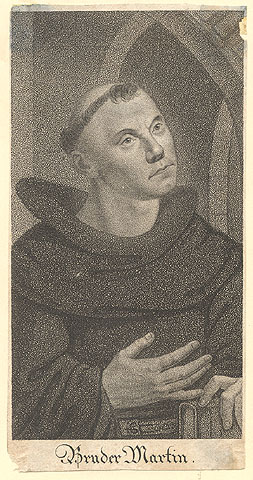
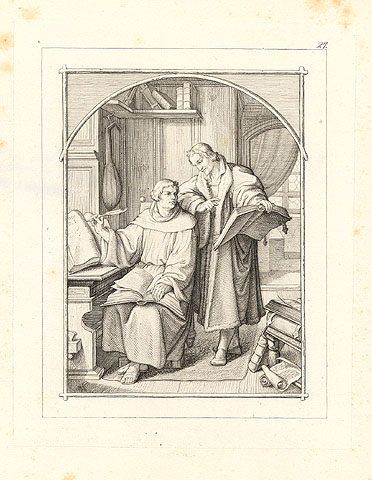
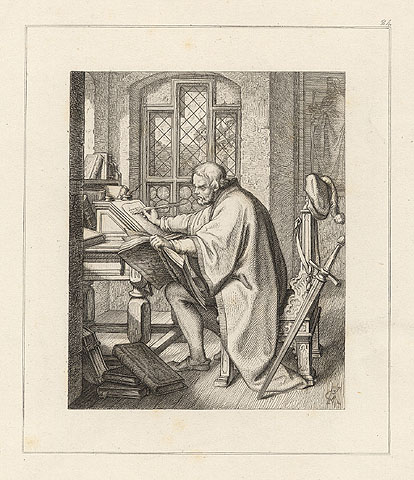
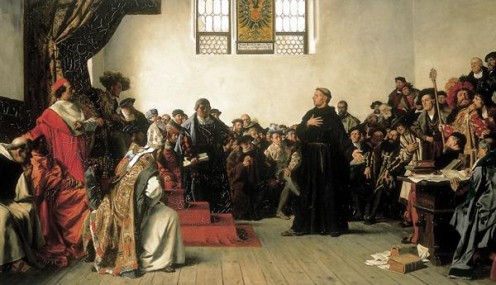
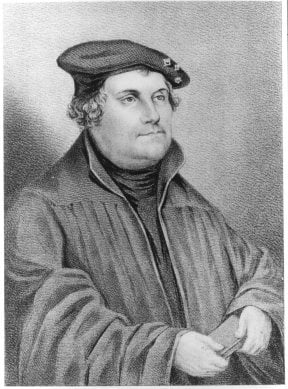
The Birth of the Reformation
God made a way for reform through political struggles as rulers, nobility, and papal office were distracted by their effort to attain power and possession. God also made a way through economic renewal and growth as municipalities clamoured for greater say in their domains. The people were made ready through Renaissance freedom to explore, think and appropriate the means to accomplish dreams and ambitions.
It was into this world of unprecedented change that Luther was born in 1483. His father Hans, already an ambitious man and wanting more for his eldest son had dreams which unknowingly sent young Martin on the path to reformation.
At the local school of Mansfeld, where his family lived, Martin showed such natural academic ability that it was decided to send him to Magdeberg. Here Luther came in contact with the mystical yet practical teaching of the Brethren of the Common Life.One year later he was sent to Eisenach where Luther made friendships with Franciscan monks and was influenced by the culture of the Renaissance.
In spring of 1501, Luther enrolled in the University of Erfurt. Instruction at the university was founded on the teaching methods of Aristotle. The faculty of philosophy permeated with the nominalism of Ockham whom Luther called his “master.” Because Luther’s yearnings and questionings he earned for himself the nickname of “The Philosopher,”
Hans Luther couldn’t have been more pleased with the progress and success of his eldest son, yet for Luther there was no peace. He struggled with God and with himself and the more he struggled the more he threw himself into his studies. It was at this moment the Lord intersected in Luther’s life, not much different from when St. Paul met the Lord on the way to Damascus. Dynamically.
On his way, back to Erfurt Luther encountered a thunderstorm of immense magnitude. The storm was so severe that Luther felt he would die; there was no refuge to be found. Luther was not ready to meet his maker. At that moment, Luther promised God he would become a monk, and was spared. True to his word, Luther entered an Observant Augustinian Order. Franz, explains the significance of this direction in Luther’s life, indeed it is of the highest significance, that for nearly two decades [Luther] was a monk of the Observance.…the monks were obligated to a diligent study of the Holy Scriptures. That the monk Luther did not read the Holy Scriptures for a long time belongs to the realm of Luther legends. He had to study them. (Franz (1959) 29)
From the monastery at Erfurt Luther was sent to Wittenberg, where Luther began his career as reformer. He, similar to Wycliffe, was sent to Rome and there he saw with his own eyes the corruption of the Church. The story of the German Reformation began with both man and times ready for the tumultuous change that would come to country, the body of Christ and the believer. Once more salvation became a choice made between an individual and their God.
A declaration of faithfulness rang clear from Martin Luther at the Diet of Worms in 1521. Here Luther stood alone, bereft of any help man could give him, before the hierarchy of the land and Church, yet Luther stood secure, in the firm grip of the Holy Spirit declaring for the world to hear,
"Unless I am convinced by the testimony of the Scriptures or by clear reason, for I do not trust either Pope or in councils alone, since it is well known that they have often erred and contradicted themselves, I am bound by the Scriptures I have quoted and my conscience is captive to the Word of God. I cannot and will not retract anything, since it is neither safe nor right to go against conscience. Here I stand. I cannot do otherwise. May God help me. Amen." (Sunshine (2005) 34)
The Luther Rose

The Reformation Continues
Luther did not start the Reformation he continued it. The Reformation did not die when Luther died, it continued through colleagues such as Melanchthon, Zwingli, and Calvin. The Reformation continued with men like John Wesley (1703-1791), George Whitefield (1714-1770), and Dwight L. Moody (1837-1899) taking a stand for the purposes of God. Today the Reformation yet continues through the lives and voices of men like John MacArthur, John Piper, and through the faithful work of ordinary pastors and leaders. However, the Reformation also continues in and through the lives of individual believers. Everyday common people who like Wycliffe, Hus and Luther give their lives so future generations can know the truth and continue to declare, “Here I stand. I cannot do otherwise. May God help me. Amen.”
2010 Ulrike Grace

